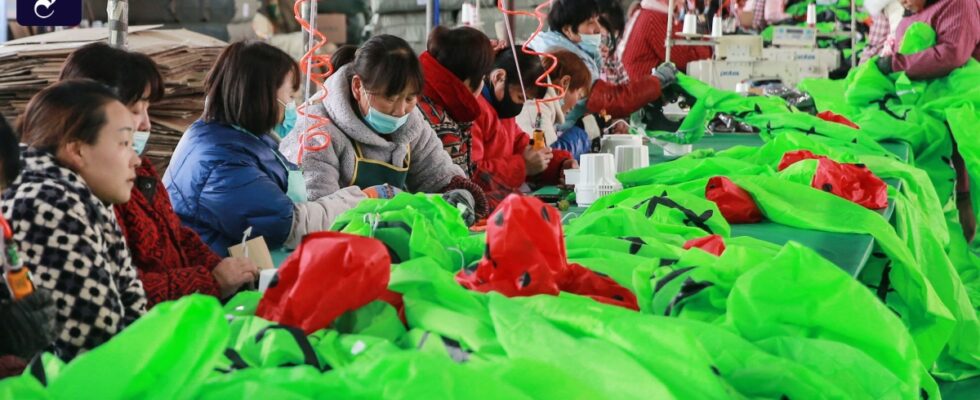OAlthough China has ended its zero-Covid policy, there is little confidence in the country. It’s no wonder that the foreign economy is cautious. All over the country, companies are hearing a complaint that is new since the rapid rise to economic power began four decades ago: Compared to five years ago, many Chinese say they are worse off today.
That surprises. China’s prosperity has grown by almost half since 2017. When people used to be asked how hopeful they were, the Chinese always came out on top. Optimism held the country together and fueled an economy that has grown by an average of nine percent annually since the turn of the millennium.
Today China seems like a realm full of sorrows. In a survey of 50,000 employees, every second person fears losing their job this year. According to Shanghai economist Zhang Jun, the fact that people no longer believe in a better tomorrow is due to the disproportionately large increase in savings deposits.
If China lost courage, it would have consequences for the whole world: for employees in Germany, for example, if customers in the Far East bought fewer German cars, with the profits from which corporations like VW finance the conversion to electromobility. The earth warmed up faster and Beijing no longer dared to say goodbye to coal at great expense. If President Xi Jinping replaced the promise of advancement with foreign policy nationalism alongside Russia, the world would be an unsafe place.
The lack of children reflects the desperation
The facts speak of an unsettled nation. The big upswing has so far failed to materialize. In January, 40 percent fewer cars were sold than in the same month last year. Sales of apartments fell by a third. However, at least the fall in house prices has stopped after the central bank opened its borrowing taps. Queues form in front of some luxury boutiques. But overall consumption, which the government has declared central to the economic comeback, is recovering much more slowly than after previous crises.
Above all, the lack of children speaks for the thesis that desperation is rampant after the corona virus. 9.5 million babies were born in the billion nation last year. Five years earlier, the number was almost twice as high. Today there are just 6.7 births per 1000 inhabitants – as few as in Japan. But while in a neighboring country that is three times as rich as yesterday, yesterday’s distribution of roles often prevents successful women from marrying and wanting to have children, China’s generation of the 1980s and 1990s is afraid of the future. Many worry that they will not be able to afford the offspring.
Those who were born in the 1970s have often made a fortune on the rise. In the gray present, the golden generation can send their children to private schools abroad. Those who entered the labor market too late, on the other hand, are often stuck today. After deducting inflation, salaries stagnate. There are mass layoffs in the IT industry. According to official statistics, one in five young people is unemployed.
A more pragmatic policy is not to be expected
At the same time, costs are increasing. In cities like Beijing, buyers now have to pay twenty-five times their annual earnings for an apartment. Even on average, life is far more unaffordable than in the West. According to Peking University’s China Family Panel Studies household survey, inequality is high and growing. The fact that insecure service jobs have replaced better-paying jobs in industry in recent years has been shown in income during the lockdowns.
Since the party paralyzed entire economic centers for months, the triumph of ideology over progress in the country has been evident. That doesn’t make you want to live. You are dysfunctional, the low birth rate warns leadership and society. Only a course correction could bring confidence back. The party’s abrupt departure from zero-Covid has proven that what was wrong yesterday can now be declared right. But it is not to be expected that politics will become more pragmatic again.
To do so, it would have to loosen the shackles it has just tightened on the private sector. It would have to give back freedom that was recently snatched away from society. And she would have to make amends in the world with friends who had just been cast out. This required a change at the top. Nobody in China dares to hope for that.
